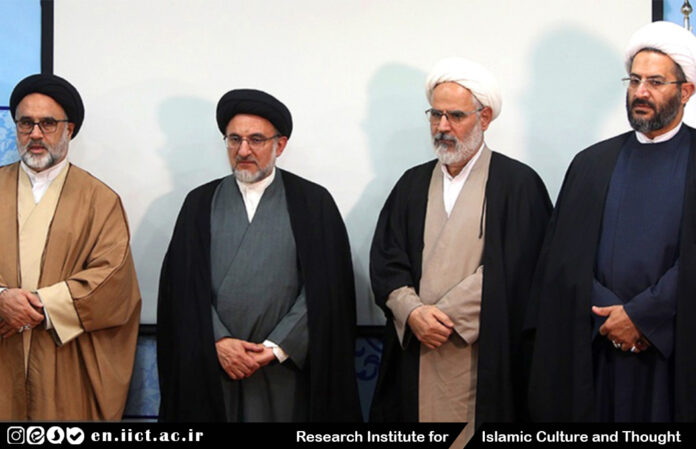According to the public relations report of the Institute of Islamic Culture and Thought, the ceremony of honoring the bests in the field of sciences and teachings of the Holy Quran was held, with the presence of Hojjat al-Islam Mohammad Ali Asadi Nasab, the director of the Institute’s Quran Studies Department.
In this ceremony, the best scholars in the teachings of the Holy Quran were honored at Tehran University of Quranic Sciences and Education, in the presence of Hujjat al-Islam wal-Muslimin Seyyed Mahdi Khamoushi, head of the Awqaf and charity organization and Hojjat-ul-Islam wal-Muslimin Mohammad Ali Asadi Nasab.
Also, in the ceremony, the book “Fundamentals of Qur’anic teachings for Religious Science” written by Hojjat al-Islam wal-Muslimin Asadi Nasab was honored.
It is stated in the introduction of the book: the Holy Quran is the most stable way to reform the individual and society in the path of achieving eternal salvation. This heavenly book has opinions, theories and schools of thought against the other proposed theories, about the program of salvation ; Because it is obviously and literally “a clarification for all things” (Nahl/89).
Many verses, both explicitly and implicitly, deal with issues raised in human sciences and can modulate them, so that the related sciences are acceptable from the Islamic perspective, in a way that can be called “Islamic science”. Islamization of religious science or humanities is one of the most challenging issues in the field of science and religion. In this matter, various aspects can be discussed, including the possibility and necessity of making science religious, especially humanities. Different viewpoints and approaches are presented in this regard, and in total there are two important spectrums, one is in favor of Islamization of humanities and the other is against it (the denial approach).
The denial approach fundamentally denies the plan of “Islamic” humanities and Islamization of these sciences by negating four main axes: “possibility and feasibility”, “permissibility and validity”, “desirability and usefulness” and “necessity” of humanities and thus considers “Islamic sciences” unreasonable or unwise; This research aims to provide direct and indirect answer to these doubts.




